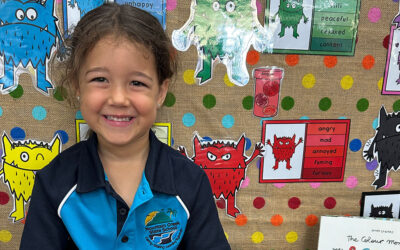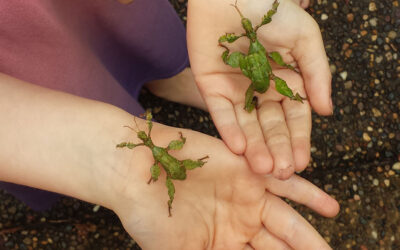The term ‘depression’ is often overused these days, but that does not mean it is not a genuine mental state which also affects children.
Depression can be defined as feelings of severe despondency, dejection, and inadequacy. However, depression is a multi-faceted mental health condition. That is, there are many different types of depressive disorders. The most common ‘type’ of depression is known as major depressive disorder. Depression is more than just a low mood, it is a serious mental health condition that affects an individual’s physical and mental well-being. Furthermore, depression is the leading cause of disability worldwide. In a single year, approximately one million Australians will experience depression.
How to tell if your child is depressed
For depression to be diagnosed by a clinician, symptoms must be present for two weeks or more. Behavioural symptoms include: loss of pleasure, lack of interest in hobbies, remaining at home, not completing important school/work tasks, withdrawing from family and friends, and an inability to concentrate for extended periods of time.
Emotional symptoms include: feeling overwhelmed, irritable, unhappy, disappointed, sad, and frustrated.
Physical symptoms include: constantly feeling tired/run down, constant headaches and muscle pains, stomach issues, insomnia/hypersomnia, and changes in appetite/weight.
For those experiencing depression, negative automatic thoughts cloud their thoughts daily. These thoughts can include ‘I’m a failure,’ ‘Nothing good every happens to me,’ ‘Life is not worth living,’ or, ‘I’m worthless.’
One in 33 Australian children is currently experiencing depression. When it comes to identifying symptoms of depression in adults, a few symptoms come to mind easily: loss of pleasure, loss of energy, self-loathing, and sadness. However, depression can present with many different constellations of symptoms, especially in children. Often young children who are experiencing depression cannot recognize or understand what is happening to them, and may not be able to articulate the feelings they are experiencing. Consequently, sadness might not even be overtly present, with irritability/anger being the main symptoms associated with a depression diagnosis. Although it can be easy to miss ‘anger’ as a warning sign for depression in young children, it is important to be mindful of mood changes in your children.
Other symptoms a child is depressed include, but are not limited to:
- Irritability
- Continuous feelings of sadness and hopelessness
- Social withdrawal
- Increased sensitivity to rejection
- Changes in appetite: either increased or decreased
- Changes in sleep: sleeplessness or excessive sleep
- Vocal outbursts or crying
- Difficulty concentrating
- Physical complaints (such as stomachaches, headaches) that don’t respond to treatment
Even though children with depression might be hard to talk to (particularly if they cannot articulate their feelings), it is imperative that an attempt is made to understand what might have set off their symptoms, and what might be maintaining them. When beginning this conversation with your child, the following points are important:
- Listen to what your child is trying to tell you without interrupting or reacting in a drastic manner. Avoid reassuring the child that ‘everything will be ok’ until they have finished telling you how they are feeling. Just let them say whatever they can and try and imagine how this might be making them feel.
- Once they have finished explaining their situation, you can ask questions. Avoid asking ‘why’ questions as these questions tend to infer judgment. Furthermore, they may not know ‘why’ they feel the way they do, but may be able to articulate ‘how’ they feel or ‘what’ they want to be different.
- Children will know you have really listened to them when you repeat the words that they have used.
- Drawing how they feel might be a useful tool if children are unable to talk about their feelings/do not want to talk about their feelings.
Sitting down with your child and making them aware that they are not alone, can often be extremely relieving for them. After this conversation has taken place, there are a number of different professionals who may be useful to your child, including a child psychologist. If you are concerned your child is depressed, or to find a psychologist near you, visit www.psychology.org.au/FindaPsychologist.
If you need help or support, contact:
Parentline: 1300 30 1300 / www.parentline.com.au
Kids Helpline: 1800 55 1800 / www.kidshelpline.com.au
You may also like…
Parenting a highly sensitive child
Let’s be honest, parenting is HARD! Especially when you do it right!
Helping a child settle into school


